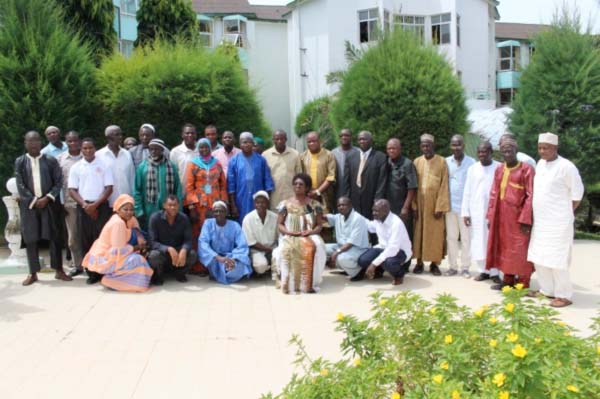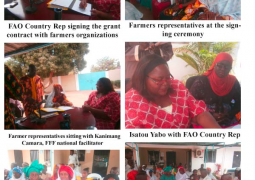
The development and validation of the strategy was bankrolled by the Food and Agricultural Organisation (FAO).
Speaking on behalf of the FAO country representative, Buba Joof said the National Agricultural Research Institute, with funding from FAO, has been implementing a technical cooperation programme in the past 15 months geared towards introducing high yielding cassava varieties.
He said this is what led to the formulation of a national cassava development strategy.
Mr Joof, monitoring and evaluation officer for the MDG1c project, said the national strategy will guide the transformation of the entire cassava value-chain into an industrial market-oriented sector that will contribute to economic growth.
A global cassava development strategy was formulated and endorsed in the year 2000 to promote sustainable cassava sector development with specific implications for food security, income generation and poverty reduction.
Mr Joof said the Gambia cassava development strategy took cue from the global cassava development strategy and aligns itself with the national development blueprints such as Vision 2016 and Vision 2020.
He said the FAO will facilitate the mainstreaming and implementation of the strategy.
“The strategy will help identify immediate and long-term needs to ensure that farmers, entrepreneurs and policymakers take advantage of opportunity offered by cassava and promote its production, processing and trade,” Mr Joof said.
“The strategy advocates for the use of demand-driven and value-chain approaches with emphasis on value addition, provision of improved varieties and other productivity enhancing technologies.”
Deputy Permanent Secretary Hassan Jallow of the Ministry of Agriculture said the development of the cassava strategy is in line with the government’s commitment to sustainably improve agricultural production and productivity in The Gambia.
He said the national strategy is developed to guide the process to promote cassava production and development of thecassava value-chain.
Read Other Articles In Article (Archive)

Youth Forum: NYC joins other ministries to commemorate World Cancer Day
Feb 9, 2016, 11:14 AM


